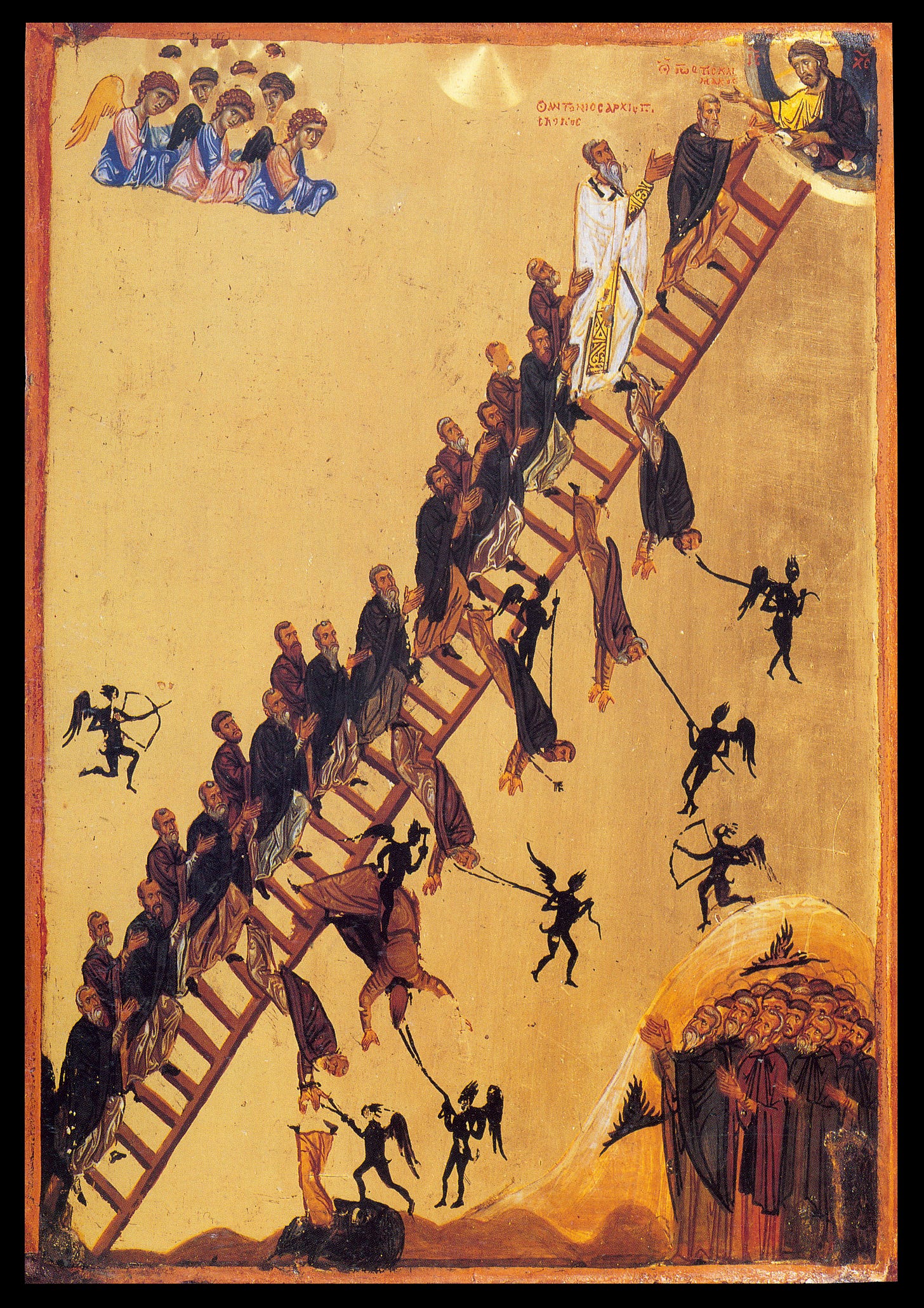The reading from Hebrews today is about faith, hope, and the assurance of our salvation. Two thousand years before Christ, the Lord swore an oath to Abraham that He would bless and multiply Him. God swore an oath and gave Abraham strong assurance of his salvation and that promise sustained the faith and hope of not only Abraham, but of all his righteous offspring, including Moses and David, until the coming of the Messiah, who was held in the arms of St Simeon and announced, “Your Word has been fulfilled. My own eyes have seen the salvation which you have prepared in the sight of every people” these past two thousand years.
Christ then made a new oath through his passion, death, and resurrection—a new covenant that has sustained our faith and hope for the past two thousand years. God’s promise in Christ is the door of our salvation, our anchor in times of trial, our comfort and certainty no matter what threatens us. Through the sacramental order established by Christ through the Apostles we have assurance of salvation and hope of eternal life. With this faith and hope, we can do all things through Christ who strengthens us. We have so many sureties of our salvation through the Church, guided and sanctified by the ministerial priesthood of Christ, according to the order of Melchizedek.
Today’s gospel passage is about a pitiful man who had very weak faith and little hope. He did not recognize Christ as the Messiah, he did not believe Christ or His Apostles had the power to save his son, but he did have the humility to ask for the gift of faith, and that was his salvation. The story is about a boy who had been possessed by a demon since he was a child. Bede remind us that children are not born innocent in all respects because of original sin. The child’s father had despaired but asks Jesus, without much hope. if anything can be done. Jesus replies saying, “If you can believe, all things are possible.” This is a reminder that we have free will. Our Lord wants us to cry out to him and plead for his mercy. This was the moment of conversion for the father of the demoniac because he then earnestly pleads, “Lord, I believe, help my unbelief!” He could not have been more sincere in his cry for help, because in that moment he realized he was a weak believer and so he asked the Lord to make up what was lacking in his virtue of faith.
Faith is a virtue that needs to be developed through practice, but faith is also a gift from God, meaning that it is both a natural virtue and a supernatural virtue. We can develop the natural virtue and we have the supernatural virtue, if we are in a state of grace, but we need to beg the Lord for an increase in faith because we cannot have perfect faith without his help. We have union with God through the supernatural virtues of faith, hope, and charity. Our duty is to remove obstacles to these virtues and beg for their increase in our soul. We remove obstacles to faith by making acts of faith and of hope, for example, by praying the daily Psalms and by focusing on the meaning of the words we pray during the Divine Liturgy.
Prayer together with fasting is very important for the healing of our soul and body. St Jerome says that softness and effeminacy are healed by fasting, and anger and laziness are healed by prayer. Fasting detaches us from carnal passions and prayer keeps us from being foolish. If we don’t fast and pray, God has to teach us the hard way by punishing us with sickness, hardship, and sometimes even demonic possession. It is easier for Our Lord to instruct us in the way of perfection concerning the things of eternity if we fast and pray. All attacks from the enemy can be overcome by prayer and fasting. And Our Lord’s just wrath for our sins can also be appeased by prayer and fasting. Let us continue to fast and pray with faith and hope this Lent! God is near.



